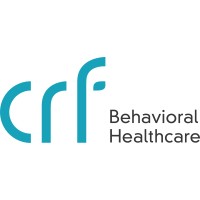Escondido, California, United States
CRF Step Forward North Inland
Unclaimed
Unclaimed
This provider hasn’t verified their profile’s information. Are you the owner of this center? Claim your listing to better manage your presence on Recovery.com.
Provider's Policy
Step Forward accepts CalWORKs Welfare-to-Work participants receiving Medicaid.
Estimated Cash Pay Rate
The cost listed here (Call for Rates) is an estimate of the cash pay price. Center pricing can vary based on program and length of stay. Contact the center for more information. Recovery.com strives for price transparency so you can make an informed decision.

Contact CRF Step Forward North Inland
Connect with CRF Step Forward North Inland by calling them directly.
Are you the owner of this center?
Claim this center
About CRF Step Forward North Inland
Step Forward North Inland, located in Escondido, is a CalWORKs Behavioral Health Center dedicated to assisting Welfare-to-Work participants facing behavioral health challenges that impede their employment prospects. The center offers outpatient services, including behavioral health and psychiatric evaluations, medication management, individual, group, and family counseling, case management, care coordination, and crisis intervention. Step Forward places a significant emphasis on educational and employment services to prepare individuals and families for self-sufficiency as they transition from welfare to gainful employment.
Accessible Community Care
Part of the Community Research Foundation, Step Forward North Inland emphasizes removing behavioral health barriers to employment, directly addressing the unique needs of CalWORKs participants. Funded by the County of San Diego's Behavioral Health Services, the program ensures accessibility by accepting Medi-Cal beneficiaries, Medi-Cal-eligible individuals, and the uninsured, with no one denied services based on inability to pay. Participants' designated Welfare-to-Work Case Managers make referrals to the program, facilitating seamless integration into their existing Welfare-to-Work plans.
Read More
Insurance Accepted
Provider's Policy:Step Forward accepts CalWORKs Welfare-to-Work participants receiving Medicaid.

Medicaid
<p>Signed into law through the Social Security Act in 1965, Medicaid is a United States government program that offers health insurance to those with limited income.</p>
See rehabs that accept this provider.
Center Overview
Estimated Cash Pay Rate
Men and Women
Men and women attend treatment for addiction in a co-ed setting, going to therapy groups together to share experiences, struggles, and successes.
Treatment Focus
At this center, you receive personalized care for mental health conditions. They provide therapy and tailor treatment to your unique needs, diagnoses, and preferences.

Care Options




Treatment
Specializations
Medicaid
Signed into law through the Social Security Act in 1965, Medicaid is a United States government program that offers health insurance to those with limited income.
Family Therapy
Family therapy addresses group dynamics within a family system, with a focus on improving communication and interrupting unhealthy relationship patterns.
Life Skills
Teaching life skills like cooking, cleaning, clear communication, and even basic math provides a strong foundation for continued recovery.
Approaches
Evidence-Based
A combination of scientifically rooted therapies and treatments make up evidence-based care, defined by their measured and proven results.
Family Involvement
Providers involve family in the treatment of their loved one through family therapy, visits, or both–because addiction is a family disease.
Holistic
A non-medicinal, wellness-focused approach that aims to align the mind, body, and spirit for deep and lasting healing.
Individual Treatment
Individual care meets the needs of each patient, using personalized treatment to provide them the most relevant care and greatest chance of success.
Medical
Medical addiction treatment uses approved medications to manage withdrawals and cravings, and to treat contributing mental health conditions.
Therapies
1-on-1 Counseling
Patient and therapist meet 1-on-1 to work through difficult emotions and behavioral challenges in a personal, private setting.
Family Therapy
Family therapy addresses group dynamics within a family system, with a focus on improving communication and interrupting unhealthy relationship patterns.
Life Skills
Teaching life skills like cooking, cleaning, clear communication, and even basic math provides a strong foundation for continued recovery.
Psychoeducation
This method combines treatment with education, teaching patients about different paths toward recovery. This empowers them to make more effective decisions.
Conditions We Treat
Schizophrenia
Schizophrenia is a serious mental health condition that causes hallucinations, delusions, and disordered thinking.
Personality Disorders
Personality disorders destabilize the way a person thinks, feels, and behaves. If untreated, they can undermine relationships and lead to severe distress.
Anxiety
Anxiety is a common mental health condition that can include excessive worry, panic attacks, physical tension, and increased blood pressure.
Bipolar
This mental health condition is characterized by extreme mood swings between depression, mania, and remission.
Depression
Symptoms of depression may include fatigue, a sense of numbness, and loss of interest in activities. This condition can range from mild to severe.
Obsessive Compulsive Disorder (OCD)
OCD is characterized by intrusive and distressing thoughts that drive repetitive behaviors. This pattern disrupts daily life and relationships.
Post Traumatic Stress Disorder
PTSD is a long-term mental health issue caused by a disturbing event or events. Symptoms include anxiety, dissociation, flashbacks, and intrusive thoughts.
Trauma
Some traumatic events are so disturbing that they cause long-term mental health problems. Those ongoing issues can also be referred to as "trauma."
Aftercare
Experience
Special Considerations
We love hearing about your treatment experience
Help individuals and families seeking treatment by sharing your first-hand experience with this treatment provider. Review Guidelines.







